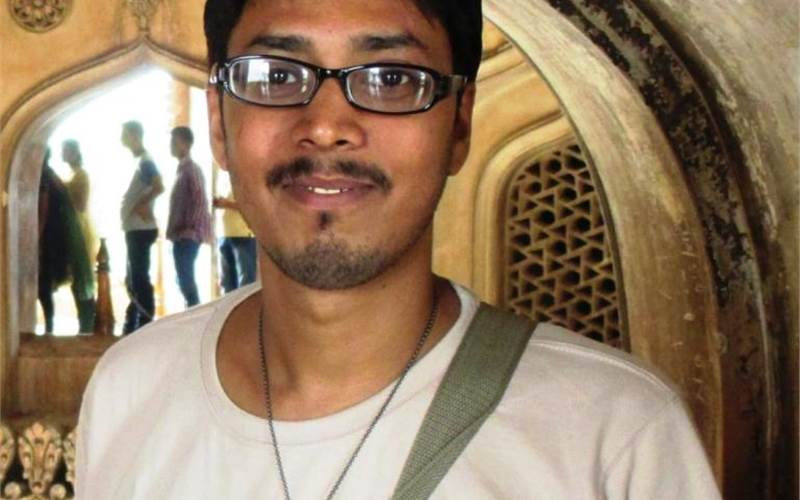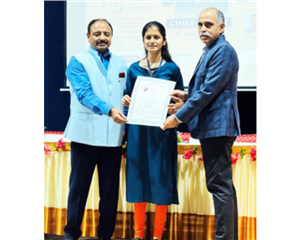The Mad, Mad World of Print: Snippets from Around India III
Away from the spotlight of big businesses, technology innovations and market predictions, this regular column brings you the stories of print from the fringes. Print is everywhere and every new experiment takes us closer to this journey we have embarked upon together – the journey to the world of print
23 Mar 2016 | By Dibyajyoti Sarma
Printing of lottery tickets growing in Kerala
Kerala chief minister Oommen Chandy on 16 March 2016 clarified that there was no decision on the part of the government to entrust the printing of lottery tickets to a private printer. Instead, the task will continue with government-owned Kerala Books and Publications Society (KBPS) and C-APT (Kerala State Centre for Advanced Printing & Training).
This is after the controversy where on 4 March the government decided to entrust a private press with the printing of lottery tickets. The move was criticised by the opposition, which said it would affect the credibility of paper lottery.
Chandy said the government had explored the option of entrusting the work to another agency after it was found that the government-owned agencies could not meet the printing target. He said the government only considered whether an agency, in which Sidco had 26% stake, could also be entrusted with the task. However, the chief minister said, the KBPS has assured the government that it would be able to meet the target.
At present, the state prints 3.90 crore lottery tickets every week. Of this, 3.15 crore tickets are printed by KBPS and 75 lakh by C-APT. The chief minister said it has now been decided to print another 40 lakh additional tickets per day to meet the increasing demand.
Lottery sales in Kerala have increased 10-fold since 2011. While the number of lotteries sold per year was 557.6 crore in 2011-12, it has touched 5,596 crore until 29 February in 2015-16. It is expected to touch 6,250 crore by 31 March.
2,000 textbooks seized from scrap dealer in Ahmedabad
This is another story of textbooks at wrong places. In the end of February, Gujarat the police seized about 2,000 textbooks of different subjects, published by the Gujarat government for distribution among students of class 1 to class 10, from a scrap dealer in Saraspur near Ahmedabad.
The police said the scrap dealer had purchased the stock, worth about Rs 20,000, from another small-time scarp dealer. According to the police, an employee of the school, where the book was supposed to be distributed free among the students, could have sold them to some local scrap dealer.
This is not the first time that a large number of textbooks have gone missing from schools, in Gujarat, or elsewhere. This is an ongoing scandal where government gives free uniform and textbooks to children in government schools but the school staff ask students to buy them from the market, saying that the books had not arrived. Later, the books are sold to scrap dealers.
The German book market in numbers
Recently, German Book Office, New Delhi released some interesting figures about the German book market.
In 2014, Germany sold 6,443 rights contracts to foreign countries. In 2013, the number was 6,466. The top two languages translating from German in 2013 were Chinese (15.3%) and English (7.0%).
The country sold total 450 contracts of rights to English-speaking countries 2014. The number was 444 in 2013. This is a rise of 1.3%. In 2014, Germany sold 191 contracts in the US (196 in 2013), and 127 in Great Britain (158 in 2013). In India, the number was down from 87 contracts in 2013 to 71 contracts 2014. No explanation for this was available.
Rights sales to Europe were 4,221 contracts in 2014, compared to 4,182 contracts in 2013. In 2013, the top three genres in translation were children’s and young adult literature (36.7%), fiction (18.6%), and guidebooks (12.6%).
The main field of interest for English language publishers were science, medicine, IT (148 licenses), humanities, music and art (87 licenses sold), fiction (67 licenses sold).
Applications for Frankfurt Fellowship Programme
GBO, New Delhi has invited application for the Frankfurt Fellowship Programme 2016 from publishing professionals. The candidate should have at least seven years of experience in publishing. Knowledge of German, of course, will be an added advantage.
First launched to mark the 50th anniversary of the Frankfurt Book Fair in 1998, the Frankfurt Book Fair Fellowship Programme provides information and networking within the international publishing world. During those last nineteen years, more than 300 participants from 55 countries have gained from this experience.
The Frankfurt Fellowship Programme focuses on information exchange, professional dialogue and the creation of networks between young international publishers. The fellows visit publishing houses and booksellers, see market presentations, have matchmaking events and dinners, and receive networking opportunities in Frankfurt and two other German cities.
Applications are accepted in March/April 2016, and it should contain three letters of recommendation from international business partners and a letter of recommendation from applicant’s own employer. Interested candidates can write to Prashasti Rastogi at rastogi@newdelhi.gbo.org for details.
Adivaani’s Ruby Hembrom among NDTV’s Women of Worth nominees
We are so happy to report that the dedicated and very talented Ruby Hembrom has been nominated in the literature category in Women of Worth, an initiative by NDTV.
The TV channel, in partnership with global beauty house L’Oréal Paris, launched the campaign to scout, recognise and award achievements of brave and driven Indian women who have committed themselves to distinguish their own lives by making a difference in the lives of others. The awards will be announced soon.
Ruby Hembrom is the founder and director of Adivaani, an archiving and publishing outfit of adivasis, which is working to bring adivasi tales back into public discourse.
Ruby gave up her job with IBM to do something to give back to the adivasi community she belongs to. After attending a publishing course, she came up with the idea of archiving tribal tales.
She has published two books – We Came From Geese and Earth Rests On A Tortoise –about the origin of the Santhals. Meanwhile, a title from Adivaani, Disaibon Hul was awarded the Printed Children’s Book of the Year, in the Publishing Next Industry Awards 2015.
Like other niche publishers, distribution is Adivaani’s biggest obstacle, but Hembrom is happy to that she has been able to sell most of her books and, more importantly, that they have been received well by the adivasi community.
Pramod Kapoor of Roli Books knighted by French government
You know Indian publishing has arrived internationally when an Indian publisher is knighted in France. This just happened. Pramod Kapoor, the founder and publisher of Roli Books has been conferred Chevalier de l’Ordre national de la Legion d’Honneur (Knight in the National Order of the Legion of Honour) by the French Government for his association of over three decades with the French publishing and creative industry.
For the record, he is the first Indian publisher to be awarded with this prestigious honour.
French ambassador to India Francois Richier bestowed the honour on the veteran publisher in a ceremony on 13 March 2016 in New Delhi. “You are not only a publisher. You have created your own enterprise and you have made it flourish, which means that you are not only a man of culture and art but a man of business, two qualities which are very important,” Richier said.
Kapoor, who founded Roli Books in 1978, has conceived and produced several award-winning books that have changed the landscape of Indian publishing. Books like Made for Maharajas, New Delhi: the Making of a Capital and most recently Gandhi: an Illustrated Biography have endeavoured to weave compelling narratives through visual storytelling.
“I am not just honoured but humbled to stand here and to be given such a big honour. It is a moment I will cherish rest of my life. I can’t help but feel nostalgic and feel almost like recounting an autobiography, not in colour but in sepia,” said the 64-year-old author-publisher while accepting the award.
For a 28-year-old beginner in the business of publishing, he said, “It was not easy but these situations inspired me.” The turning point really in Kapoor’s career was when in 1981, he flew to Paris not to sell but to buy a book that, according to him, changed the course of Roli Books. “I thought the best way to sell a book to a country was to learn by way of buying books from them and experiencing the way they create them,” he said.
The Legion d’Honneur, created in 1802 by Napoleon Bonaparte, is the highest civilian award given by the French Republic for outstanding service to France, regardless of the nationality of the recipients.














 See All
See All